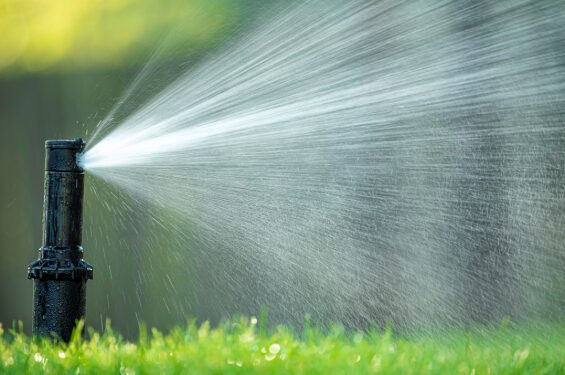
A new driveway or patio can make your home more comfortable and welcoming. Your main decision when installing or updating is which material to use. The choice depends on local zoning, your budget and your needs.
In many communities, building codes may specify what types of driveway materials are – or aren’t – allowed. These may be based on local weather conditions, water concerns and appearance. Check any HOA rules and building codes first, and then consider the benefits and downsides of each of the various material options.
Gravel
Cost-wise, gravel is generally the least expensive option, so it can be a valuable choice if your driveway is very long. It can be as little as $0.50[1] per square foot if you do it yourself. It allows water to soak through to reduce runoff, making it a good environmental choice.
However, gravel can also be rough and uneven, seasonal maintenance requires returning stray stones to the drive. Unless it’s very fine, gravel isn’t an ideal choice for a patio because it’s difficult to walk on and the uneven surface can make it difficult to set up accessories like outdoor furniture.
Asphalt
One of the pros of asphalt is that it’s one of the least expensive, low-maintenance choices you’ll find in driveway materials aside from gravel, experts say. The plain look isn’t stunning, but it gets the job done for about $1 to $5[2] per square foot. It responds well to areas where there are extreme variations in temperature because the material is flexible.
Asphalt doesn’t have to look bland. It’s possible to do stamping or to color the material, which gives the option more curb appeal. The special treatments usually cost more, however.
On the downside, the material requires more maintenance because it can develop cracks, especially along the edges. You or a contractor can seal the cracks easily and inexpensively, but the entire driveway needs resealing every three to five years. The material is also better for regular or larger jobs, but it’s not as cost effective on smaller jobs because contractors often charge a fixed minimum.
While gravel and asphalt work for driveways, neither is a great choice for a patio. If you’re looking to do both projects at once, another material option is likely more suitable.
Stamped Concrete
Concrete may cost more than asphalt, at around $3 to $10[3] a square foot, but the material is more durable. Cement driveways typically last 30 years compared to 20 for asphalt, with very . The low maintenance and easy care make pressed concrete patios popular, too.
Concrete has some disadvantages. It doesn’t handle extreme temperatures as well as asphalt. Not only can it crack under pressure after freezing and thawing, but it can also break down when your tires track road chemicals onto it if it’s not properly sealed. At the same time, concrete’s lighter color means it’s more likely to show stains. When it does need to be fixed, the repairs tend to be more expensive.
As with asphalt, you can make your concrete more attractive by having it stamped. The material is the same, but the process is slightly different. The contractor pours the concrete and stamps or imprints it to look like brick, stone or slate. This type of customized driveway can cost around $8 to $18[4] a square foot. Unfortunately, repairs may require tearing up the whole driveway.
Concrete Pavers
They may be more expensive, but concrete pavers are more environmentally friendly and add character to a driveway or patio. They can be made water permeable in areas with stringent storm water-management requirements.
The beauty comes at a price, though. Brick pavers can cost around $10 to $50[5] a square foot, compared to $3 to $10 for concrete. The option also takes longer because pavers must be installed individually. However, it’s possible to install concrete patio pavers yourself, which can bring costs down considerably.
Paver driveways and patios require relatively little maintenance, are highly durable and generally do well in all climates. Repairs can be easier with pavers vs. concrete; you can fix or replace individual pavers without removing whole sections of the driveway or patio.
Once you’re ready to get started with your driveway or patio project, learn how to find a great contractor who’s right for the job
[1] https://www.landscapingnetwork.com/driveways/cost.html
[2] https://www.landscapingnetwork.com/driveways/cost.html
[3] https://www.landscapingnetwork.com/driveways/cost.html
[4] https://www.concretenetwork.com/stamped-concrete/cost.html
[5] https://www.landscapingnetwork.com/driveways/cost.html



